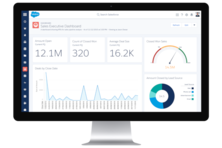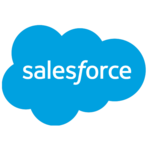Comprehensive CRM software solutions are all-in-one platforms for businesses of all sizes, allowing users to organize workflow, track sales processes and improve customer relationships. Comprehensive CRMs entail having most, if not all, features that are designed to effectively meet the demands of a growing business.
It’s suitable for most organizations looking for systems to assist in daily operations, such as management, tracking and customer service.
Companies and enterprises make use of comprehensive CRM solutions as a means to maximize all productive efforts involved in customer interactions. Your customer database is the most important tool to have when you want to increase sales.
This gives you access to all information regarding a customer which can prove useful later on in your business.
While it may seem like CRM systems focus only on customer management, integrated tools in their suite packages address other business needs as well. This includes sales and marketing, business processes and sales pipelines. You don’t have to necessarily focus on improving one field of your organization.
Instead, you can have an all-around comprehensive CRM system to improve all fields.
This type of software also allows you to pursue and nurture leads into sales. This is one of the core functions of having customer relationship management software in the first place. By giving you the necessary platform and tools to retain both old and new customers, you’re allowing your company to grow and thrive.
For bigger enterprises, this means swiftly meeting the demands of a large audience.
Four types of comprehensive CRM software systems exist in the current market:
Operational CRM deals with the daily operations involved in making sales and improving customer relationships. This refers to generating promising leads, nurturing them into contacts, recording all necessary information and providing essential customer service to the audience.
Analytical CRM provides the necessary analytics and statistics to improve the way you manage your business. It does this by gathering customer information and analyzing them in a methodical procedure. Overall, it improves your ability to effectively stay on top of management, marketing, sales and support by providing helpful trends and insights.
One of the key features that should be found in every organization is collaboration. This allows the entire company to share information between several departments such as the sales team, marketing team, technical and support team and more. Through this, it becomes easier to improve the overall quality of customer service.
This type of platform refers to a packaged software capable of cleaning and unifying customer data from several reliable sources to create a single customer profile. Some of its additional functions include measurement analytics, predictive modeling and content marketing. It’s helpful in managing multiple channels and integrating data.
Before deciding which software vendor to go to, it’s best to compare free plans and finalize what your business needs. This can be done by having a check-list of all the requirements and features you wish to apply to your daily operations.

 Salesforce offers a fully comprehensive CRM solution for businesses of all sizes. It offers a highly customizable and powerful solution with a range of third-party add-ons and integrations. If you require a scalable solution for larger sales teams, this is the right choice for you.
Salesforce offers a fully comprehensive CRM solution for businesses of all sizes. It offers a highly customizable and powerful solution with a range of third-party add-ons and integrations. If you require a scalable solution for larger sales teams, this is the right choice for you.
Businesses of all sizes can use comprehensive CRM software as a way to address rising issues and problems typically experienced in customer service. These issues include missing information, being put on hold and delayed projects.
In order to reduce said challenges, comprehensive CRMs offer a variety of useful features created to enhance sales force efficiency, personalize marketing strategies and connect all existing customers and channels into a single platform.
Salesforce, a customer relationship management software solution, offers advanced features and functionalities catered to bring companies and customers together. It does this by creating engaging marketing strategies, connecting every commerce channel and supporting every customer.
Some of its most prominent features include customer engagement tools, contact management, analytics and an intuitive mobile-ready dashboard.
Even though different types of CRM solutions are provided by software vendors, there are three features across these systems that are highly prioritized by users:
Email tracking refers to the ability to look over customer engagement in regards to your email marketing campaigns. This means being able to know if an email has been clicked on or opened multiple times. What this feature does is provide you with insights on which contacts can be turned to leads in the long run.
It can be integrated with well-known email services and integrates with other popular software solutions through an API.
Contact management refers to a centralized location for all customer databases. This gives you and your entire workforce access to vital customer information such as contact details, support interactions, demographics, transaction history and many more.
By having this feature, you don’t have to worry about your employees not receiving up-to-date details since everything is stored in a cloud-based database.
Every lead has a lifecycle you need to constantly manage. In order for most, if not all, of your leads to be converted into sales, you need an effective lead management tool to facilitate each pipeline stage.
When your lead volume grows, you’ll start to see an increase in calls from referrals, social media interactions and organic searches. This feature helps through follow-ups, providing lead engagements and sharing valuable content.
When it comes to comprehensive CRM software solutions, many benefits can be gained through their multi-functional features and user-friendly interface. Since most of the processes are automated, you don’t even have to keep a close eye on such a system—it runs the tasks for you.
As long as you set the necessary requirements for each business process, then you’ll be able to focus less on administrative duties and more on improving the quality of your business. With this in mind, not only will you be benefiting the company side but the customers as well.
The following factors are optimized by comprehensive CRM tools:
With the help of the management tools found in the cloud-based CRM tool, your customer-centric business becomes more accessible to the people who want to buy your products through an eCommerce platform. You are also better equipped to deal with sales and order purchases, handle customer inquiries and even offer new payment platforms.
In order to gain the attention of your customers and retain their loyalty later on, marketing strategies are prioritized in CRM software. Its integrated features allow you to understand and customize marketing strategies to promising leads. A helpful method in relation to this is email marketing, which you can upgrade by personalizing the content you’ll send to your customers.
The overall sales revenue of your business drastically improves with the help of sales automation tools. By providing deep insights regarding the trends and patterns of the organization’s performance during a specific time period, you can make data-driven decisions and forecast sales efficiently. By changing your marketing strategies, your sales are also directly affected.
CRM software solutions allow you to receive unified
Overall, a comprehensive CRM is a valuable asset for any business that handles customer relationship and lead generation. The features and functionality of a comprehensive solution ensure that businesses can effectively nurture leads, improve customer relationships and manage databases efficiently.